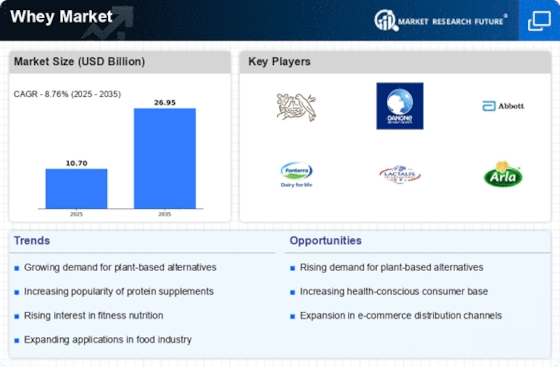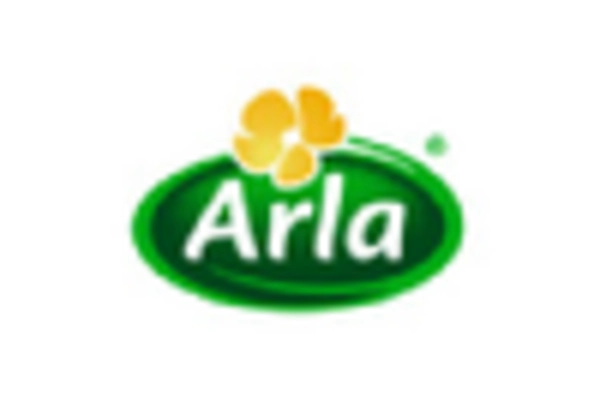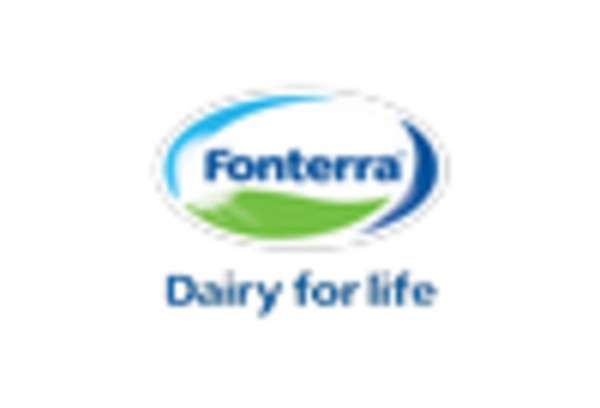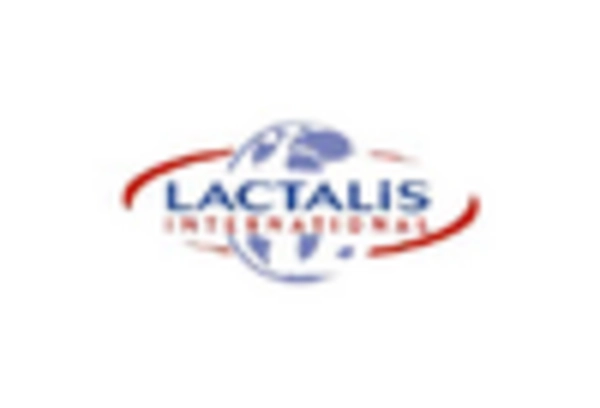Market Analysis
In-depth Analysis of Whey Market Industry Landscape
The whey market is experiencing dynamic shifts influenced by various factors, including changing consumer preferences, technological advancements, regulatory frameworks, and industry competition. Whey, a byproduct of cheese production, has gained popularity as a versatile ingredient in the food and beverage industry due to its high nutritional value and functional properties. As consumers become increasingly health-conscious, there's a growing demand for whey-based products that offer benefits such as muscle building, weight management, and improved athletic performance.
One of the primary drivers of the whey market is the rising demand for protein-rich foods and supplements. Whey protein, in particular, is highly valued for its complete amino acid profile and rapid absorption, making it an ideal choice for athletes, fitness enthusiasts, and individuals looking to increase their protein intake. With the growing popularity of high-protein diets and lifestyles, the demand for whey protein supplements, protein bars, shakes, and snacks is on the rise, driving market growth.
Furthermore, changing consumer preferences towards clean-label and natural ingredients have led to a shift in the market dynamics of whey. Consumers are increasingly seeking out products made with minimal processing and additives, driving demand for whey protein isolates and concentrates that are free from artificial flavors, colors, and preservatives. Additionally, the trend towards plant-based diets has led to a growing demand for plant-based protein alternatives, such as pea protein and soy protein, which compete with whey in the protein market.
Technological advancements have also played a significant role in shaping the whey market dynamics. Innovations in processing technologies have enabled manufacturers to produce whey ingredients with improved functionality, stability, and sensory properties. Advanced filtration techniques, such as membrane filtration and ion exchange, allow for the isolation and purification of specific whey proteins, such as whey protein isolate (WPI) and whey protein concentrate (WPC), which cater to diverse applications in the food and beverage industry. Moreover, advancements in flavoring and formulation have expanded the range of whey-based products available in the market, including flavored protein powders, ready-to-drink shakes, and protein-enhanced snacks.
Regulatory frameworks also influence the dynamics of the whey market, with regulations governing food safety, labeling, and ingredient standards impacting product formulation and marketing strategies. Compliance with these regulations is essential for market access and consumer trust. Additionally, health claims associated with whey protein, such as muscle building, weight management, and immune support, are subject to scrutiny and require scientific evidence to support their efficacy. Changes in regulatory requirements can impact product formulations, labeling, and marketing claims, influencing market dynamics and competitive positioning.
Competition within the whey market is intense, with numerous players vying for market share through product differentiation, branding, and marketing strategies. Key players in the market are focusing on innovation and new product development to stay ahead of the competition. This includes the development of novel whey-based ingredients, such as whey protein hydrolysates and peptides, which offer enhanced solubility, digestibility, and bioavailability. Moreover, strategic partnerships and collaborations with food and beverage manufacturers, retailers, and sports nutrition brands are essential for increasing brand visibility and market penetration.


















Leave a Comment